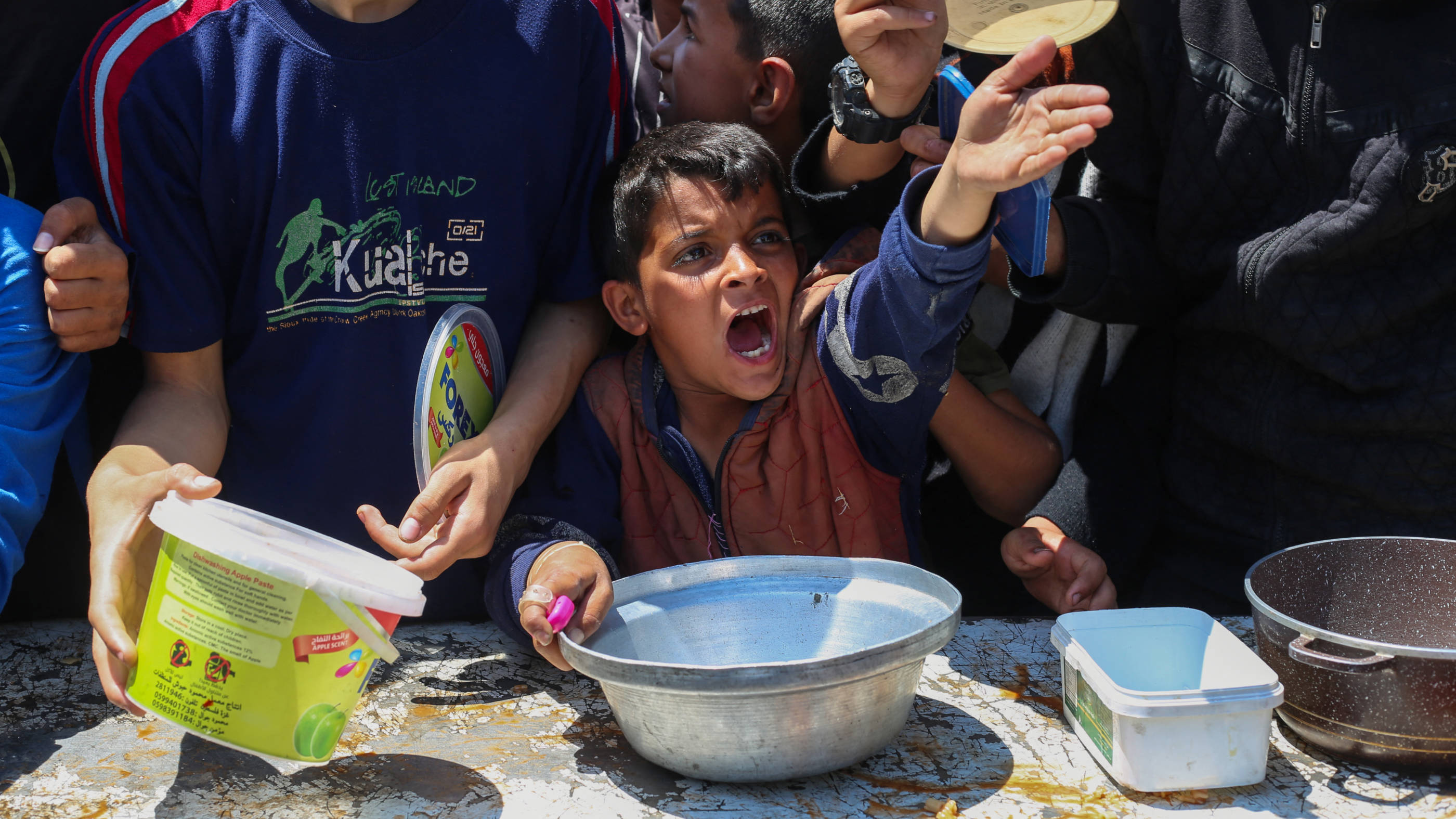Famine imminent in Gaza if Israel doesnt lift blockade hunger monitor warns

Famine is imminent in Gaza, with half a million people at risk of starvation unless Israel lifts its siege, according to a grim new report released on Monday by a global hunger monitor, marking a major deterioration since its last report in October.
The Integrated Food Security Phase Classification (IPC), a global network of UN agencies and humanitarian groups, reported Monday that 477,000 people in Gaza, or 22 percent of the population, are facing “catastrophic” hunger from May to September, the highest classification level.
Over one million more are at “emergency” levels, marked by severe food gaps and high acute malnutrition.
“The current level of human suffering, destitution and harm is extreme and requires urgent action from all parties,” the IPC said in its report.
The IPC warned that famine is imminent if the current conditions persist. The ongoing Israeli blockade, in place since 2 March, has severely restricted the entry of essential food and medical supplies into Gaza.
New MEE newsletter: Jerusalem Dispatch
Sign up to get the latest insights and analysis on Israel-Palestine, alongside Turkey Unpacked and other MEE newsletters
The blockade, coupled with over 19 months of intense bombardment, has decimated local food production and infrastructure, leaving residents almost entirely reliant on dwindling external aid.
Communal kitchens, which have become the primary source of food for many, are rapidly shutting down due to a lack of supplies. Thousands of Palestinians queue daily, hoping for minimal food rations, often leaving empty-handed.
The data was gathered by IPC in Gaza between 1 April 1 and 10 May. The IPC, which rarely declares famines, has done so in Somalia, South Sudan and Darfur in previous years.
Engineered starvation
In reaction to IPC’s report, the World Food Programme (WFP) said that over 116,000 metric tons of food, enough to feed one million people for four months, remain blocked at the border.
The WFP said on Monday that it had exhausted its food stocks in April, and all 25 WFP-supported bakeries have closed due to shortages of wheat flour and cooking fuel.
“Families in Gaza are starving while the food they need is sitting at the border,” said Cindy McCain, executive director of the WFP.
“If we wait until after a famine is confirmed, it will already be too late for many people.”
Children are among the most severely affected. Save the Children reported that more than 93 percent of Gaza's children, around 930,000, are at critical risk of famine.
Unicef said it has treated 11,000 children for acute malnutrition since the start of 2025, with cases climbing dramatically in March.
“Hunger and acute malnutrition are a daily reality for children across the Gaza Strip,” said Unicef executive director, Catherine Russell.
Oxfam also condemned the situation.
“Gaza’s starvation is not incidental - it is deliberate, entirely engineered - and has now created the largest population facing starvation anywhere in the world,” said Mahmoud Alsaqqa, Oxfam’s food security and livelihoods coordinator. “It is unconscionable and is being allowed to happen.”
He described the total siege as a “manmade famine unfolding in real time,” with scenes of malnourished children too weak to cry and entire communities surviving without food or clean water.
“In one displacement camp, only five of 500 families had any flour left to make bread,” he added.
Weaponised aid
The IPC said that an Israeli plan announced on 5 May to facilitate aid delivery was “highly insufficient to meet the population’s essential needs”.
Israel maintains that the blockade is necessary to pressure Hamas into releasing the remaining captives and insists on a new aid distribution system under its control.
Humanitarian agencies oppose this plan, saying it weaponises assistance.
“Turning aid into a tool of control endangers civilians, erodes the neutrality of humanitarian work, and risks unleashing even greater chaos and suffering across Gaza,” Alsaqqa said.
Meanwhile, international leaders have voiced their concerns, including the new pope.
Pope Leo XIV, in his inaugural Sunday address, called for an immediate ceasefire in Gaza and urged the global community to allow humanitarian aid into the strip.
Irish Taoiseach Micheal Martin labelled Israel's blockade as a "war crime" and said it is "wholly unacceptable”.
middleeasteye.net